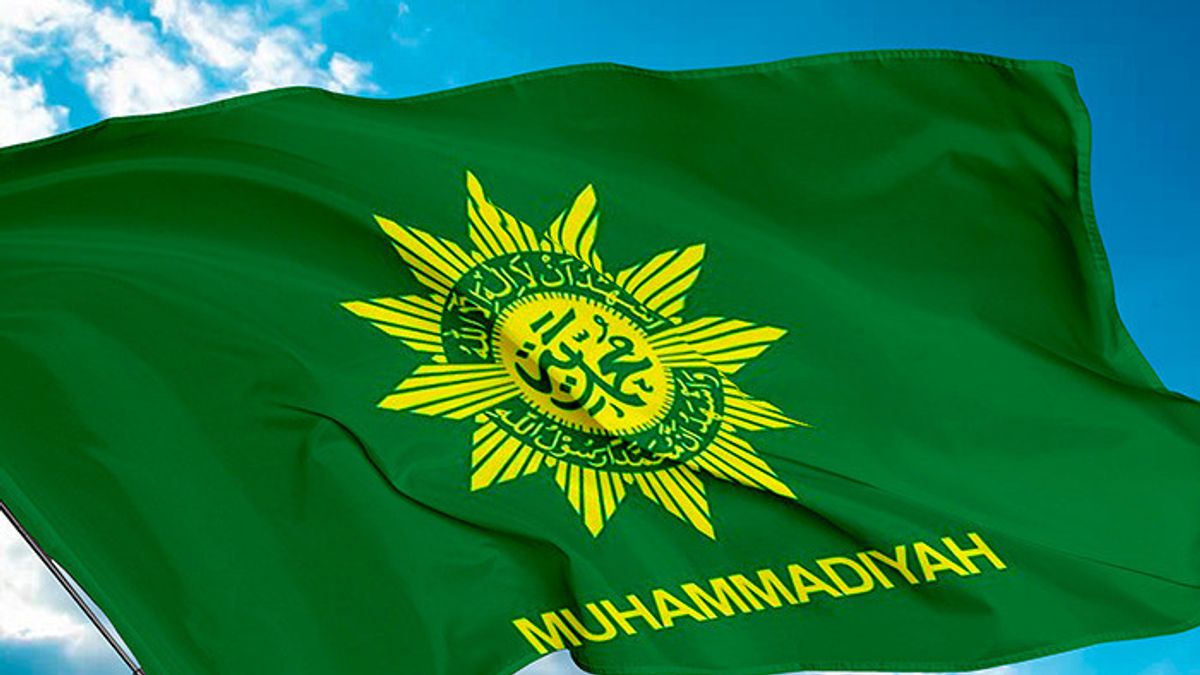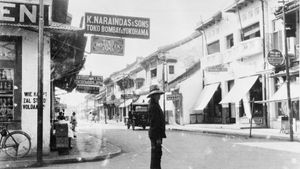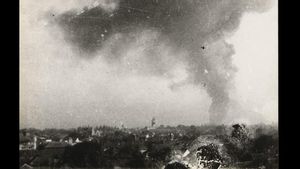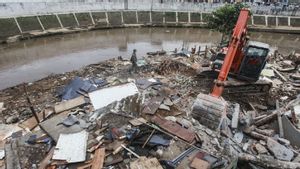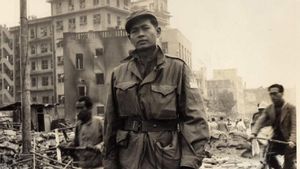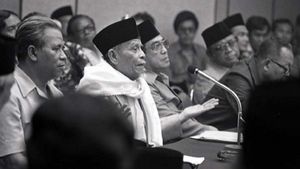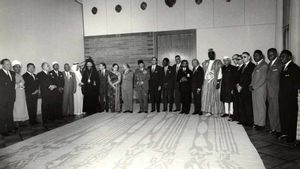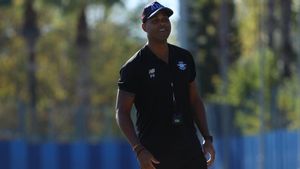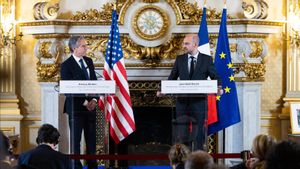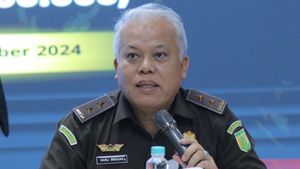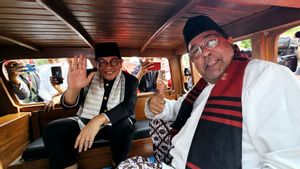JAKARTA - The power of Kiai Haji (KH) Ahmad Dahlan practiced there is no two ruf nahi munkar. This spirit was channeled in building Muhammadiyah. He wanted Muhammadiyah to be a forum for inviting Muslims to uphold the truth and forbid what was wrong.
However, Muhammadiyah is not a perfect mass organization. The mass organization was criticized for not taking sides with the small people. Muhammadiyah rarely defended the victims of the New Order (Orba) era eviction. From the victims of the eviction of the elite Tawang Mas housing project to the Kedung Ombo Reservoir.
Ahmad Dahlan's desire to study religion to Makkah is unanimous. He got the blessing of his parents to live and demanded knowledge in the Holy Land. He did not waste that opportunity. He studied with many scholars for a while.
The results were brilliant. The man whose real name is Muhammad Darwis has a wide realm of thought. This knowledge was transformed into a valuable gift that he brought from Makkah. He also formed a new struggle forum in Kauman Village, Yogyakarta on November 18, 1912.
Muhammadiyah, his name. The establishment of Muhammadiyah is devoted to the medium of Islamic renewal. Muhammadiyah's breath was clear. Amar ma'ruf nahi mungkar, upholding truth and forbidding wrong.
The Quran is the main guideline. The verses of the Quran are trying to be properly practiced in everyday life. Many people also support it. His followers are growing. Muhammadiyah also grew into a reformist-modern movement.
The movement was able to enlighten and advance knowledge. The purpose is, among other things, so that the bumipurta can fight poverty and ignorance. Instead of just building schools, mosques, or teaching alone, Ahmad Dahlan often intervenes to set an example to perpetuate kindness to others.
Those who are less able to be helped. Even those who are orphans are embraced and given the opportunity to access education. Therefore, the Dutch colonialists are often troubled by Muhammadiyah's movements.
The Muslim preachers (Muhammadiyah da'wah winners) brought invaluable lighting and they invited people to understand and carry out their religion by using logical, rational, and healthy wisdom or nature of mind. In accordance with the guidance of the Holy Book and the Sunnah of the Prophet. Muhammadiyah then developed not only in the field of tabligh and teaching.
"But also in the community sector, such as orphanages, poor shelters, medical centers, hospitals, and even large political influences. Regarding Muhammadiyah's movements and practices, the Indonesian people feel the joy of getting help in their life which was felt heavy during the Dutch colonial era," explained Sutrisno Kutoyo in the book Kiai Haji Ahmad Dahlan and Persyarikatan Muhammadiyah (2011).
Muhammadiyah began to become one of the big Islamic organizations at the beginning of Indonesia's independence. Muhammadiyah also perpetuates in the world of education. The school is everywhere, as well as sympathizers.
Problems arise when Suharto and the New Order are at the helm of power. Muhammadiyah's Nyali is considered to be shrinking. The New Order is considered to have helped Muhammadiyah a lot. This fact made the recitation to defend the weak no longer see. Muhammadiyah's elite is like being trapped in a culture of obeying the authorities.
The narrative was clearly seen when many small people conflicted with the authorities, Muhammadiyah was like a thousand languages silent. New Orders with military power were able to secure investment. Even though the people have to be victims. They lost land, livelihoods, and their homes were evicted.
Take for example in the case of eviction of fishermen to build elite Tawang Mas housing in Semarang. Then, the eviction case to build the Kedung Ombo Reservoir in 1985. Those affected by the construction of the Kedung Ombo Reservoir were not small.
The victim covered 37 villages in seven sub-districts in Sragen Regency, Boyolali, Grobogan. A total of 5,268 families lost their land due to the construction of the reservoir. Residents are forced to receive minimal compensation.
This condition moved all Indonesian people to help. The flow of moral and material assistance emerged from all kinds of elements of society. Nahdlatul Ulama (NU), especially. Even the officials, Abdurrahman Wahid (Gus Dur), went to the field many times to the victims of the Kedung Ombo Reservoir eviction.
Many parties have questioned Muhammadiyah's attitude. Muhammadiyah is considered silent. Criticism is not. This attitude is far from the spirit of ma'ruf nahi mungkar, which was echoed by his founder, KH Ahmad Dahlan. Even though Muhammadiyah only started choosing a position opposite the government in 1994.
SEE ALSO:
Their leadership style can be seen from Muhammadiyah's attitude towards cases of eviction of poor fishermen for housing projects not criticizing, allowing others to criticize or object to the government. In most cases of eviction, poor fishermen get inappropriate replacements.
For example, the Kedung Ombo dam construction project and the Tawang Mas elite housing construction project. Criticism of Muhammadiyah was thrown by a large number of people. Muhammadiyah leaders are considered not to take any action to defend the living rights of these fishermen in the Tawang Mas case in Semarang, "said Fuad Fachruddin in the book Religion and Education of Democracy: The Experience of Muhammadiyah and Nahdlatul Ulama (2006).
The English, Chinese, Japanese, Arabic, and French versions are automatically generated by the AI. So there may still be inaccuracies in translating, please always see Indonesian as our main language. (system supported by DigitalSiber.id)
